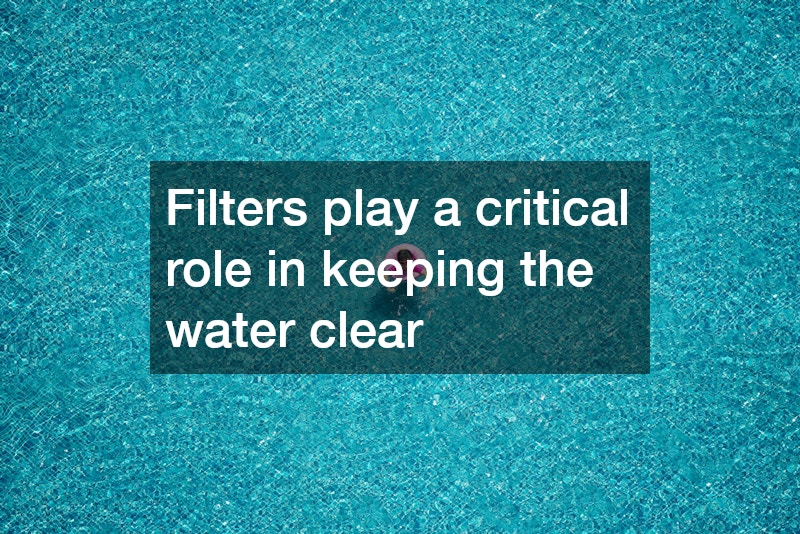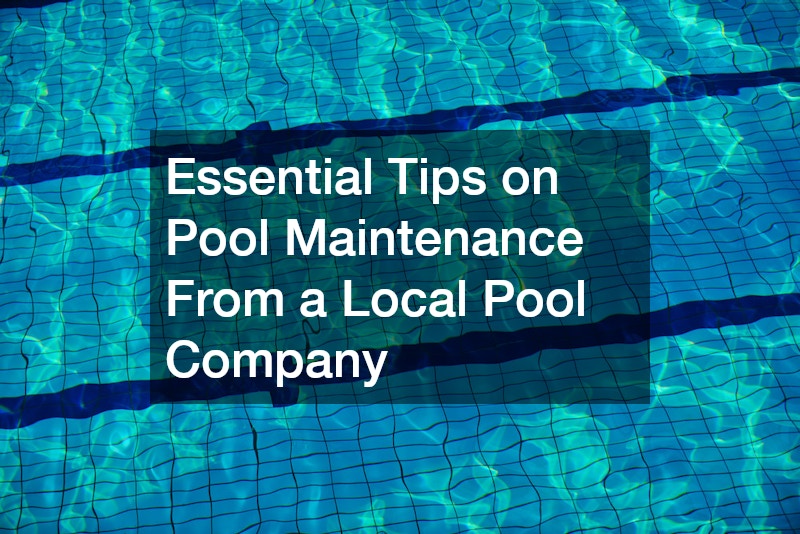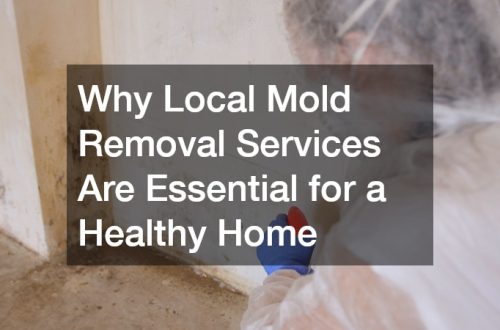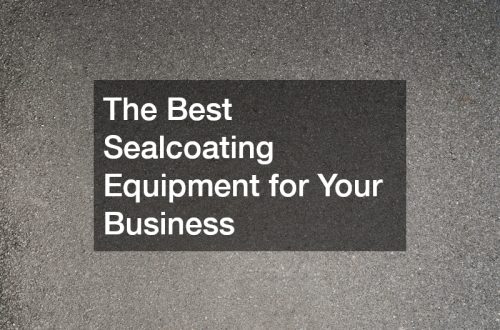Swimming pools are wonderful assets to any home, offering a refreshing escape during hot weather and a fun gathering place for friends and family. However, owning a pool comes with its responsibilities. Regular pool maintenance is crucial to ensure that the water remains clean, safe, and inviting. By taking advice from a knowledgeable local pool company, pool owners can ensure they are following the best practices specific to their regional climate and water conditions.
Local pool companies bring a wealth of experience and tailored solutions that generic guides may not offer. They understand the unique challenges that pool owners face in their area, such as varying weather patterns and common water quality issues.
This localized expertise can make a significant difference in maintaining a healthy swimming environment.
Throughout this article, we will explore essential pool maintenance tips from a local professional’s perspective. From cleaning schedules to chemical balancing and equipment care, each aspect plays a critical role in extending the life of your pool and ensuring the safety of those who use it.
How Often Should I Clean My Pool?
Maintaining a clean pool requires regular attention and varies with the seasons. Ideally, you should skim the surface of the pool daily to remove leaves and debris. Vacuuming should be done at least once a week to keep the pool floor clean. In autumn, when leaves fall more frequently, you might need to increase this frequency. Brushing the pool walls weekly can help prevent algae buildup and maintain the pool’s aesthetic appeal.
Aside from regular cleaning, it is important to consider a more thorough seasonal cleaning routine. During spring, a deep clean can prepare your pool for the peak swimming season by addressing any grime or buildup that accumulated during the winter. Draining and refilling your pool isn’t frequently necessary but consult with your local pool company about how often this should be done based on your climate and water quality.
Your local pool company can offer valuable insights into the peculiarities of your local environment and seasons, tailoring a cleaning schedule that suits your pool’s specific needs. Adopting their recommendations will not only ensure a clean and safe swimming pool but can also help you effectively manage your time and resources.
What Are the Best Practices for Balancing Pool Chemicals?
Balancing pool chemicals is crucial for maintaining healthy water quality. A well-balanced pool makes swimming safer by minimizing skin irritations and preventing pathogens from thriving. Start by testing your water regularly, at least once a week, or more if the pool is heavily used. Use a reliable testing kit to measure pH levels, chlorine, and alkalinity. The ideal pH level for pool water is between 7.2 and 7.8, ensuring swimmer comfort and optimal chlorine effectiveness.
Maintaining proper chlorine levels is essential for disinfecting the pool and keeping it free from bacteria and viruses. Aim to keep chlorine levels between 1 and 3 parts per million (ppm). Shock the pool periodically, especially after heavy use, to remove chloramines which can cause odors and eye irritation. A shock treatment involves adding a higher dose of chlorine to break apart these irritants and sanitize the water thoroughly.
Alkalinity acts as a buffer for the pH level; low alkalinity can cause pH to fluctuate widely, while high alkalinity can cloud the water and reduce chlorine effectiveness. Maintaining total alkalinity in the range of 80 to 120 ppm will stabilize your pool’s pH levels and prevent water condition problems. Local pool experts can provide tips on handling local water properties, which often influence chemical balancing.
How Can I Prevent Algae Growth in My Pool?
To prevent and control algae growth, a combination of chemical and physical interventions is necessary. Algae thrive in warm, untreated pool water and can quickly turn clear water into a murky, hazardous sight. Ensure that your pool’s filtration system runs efficiently, circulating water to inhibit stagnant areas where algae can flourish. Regularly cleaning areas such as ladders and corners, which often harbor algae spores, is vital.
Consistent chemical maintenance is equally important. Ensure that your sanitizer levels remain optimal, as this directly impacts algae prevention. Chlorine is a common sanitizer that, when used correctly, can hinder algae growth. However, because algae can develop resistance over time, employing algaecides as a complementary treatment is wise. Consult with your local pool company about the best algae prevention strategies for your specific region.
What’s Involved in Regular Pool Equipment Maintenance?
Pool equipment is the backbone of a well-maintained swimming pool. Regular maintenance of pumps, filters, and heaters is essential in ensuring smooth operation. The pool pump should run for approximately 8 to 12 hours a day, depending on the size of the pool and usage level. Regular inspection and cleaning of the pump basket prevent debris from causing blockages.
Filters play a critical role in keeping the water clear by trapping debris. Cartridge filters should be cleaned every few weeks, while sand filters and diatomaceous earth filters might require backwashing and deep cleaning less frequently. Pool heaters also need routine checks to ensure efficiency. Misalignment or poorly functioning heaters can cause energy wastage and uneven pool temperatures.
Proper pool maintenance is essential not just for aesthetic appeal but also for health and safety reasons. By keeping a consistent cleaning schedule, balancing chemicals appropriately, preventing algae growth, and conducting routine equipment maintenance, you can enjoy your pool to the fullest extent. Consulting with a local pool company ensures you’re receiving tailored advice suited to your specific environment and pool set-up.
In summary, turning to experts in your local area for advice and service can dramatically enhance the quality of your pool maintenance efforts. By integrating their invaluable knowledge with regular upkeep, you will relish a clean, safe, and long-lasting swimming environment for years to come.






